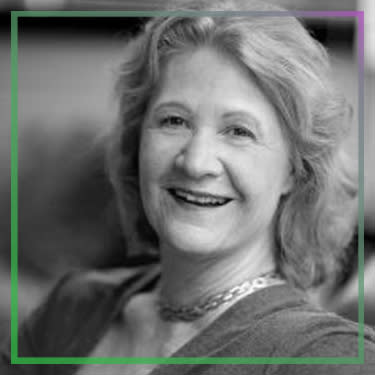How We Supercharged Our Retirement Savings
Eyes on the Prize

Anyone who ever thinks about retiring knows she’s supposed to be amassing a fortune in her retirement accounts. But that’s easier said than done: The median working-age household has just $3,000 in retirement savings, according to the National Institute on Retirement Security.
But some women — let’s call them supersavers — have managed to squirrel away huge caches of money. Each woman profiled here has saved hundreds of thousands toward her retirement, whether in traditional retirement accounts, investments, or other savings accounts. What do they all have in common?
Here’s how they did it — and how you can too.
Ilene Davis, 65, Cocoa, FL: $1.5 Million Saved

Davis has been a saver as far back as she can remember. She’s been mostly on her own financially since she was 19, except for an 11-year marriage, and she has worked as a mathematician, computer programmer, and stockbroker. Currently she’s a certified financial planner.
To save more, Davis buys most of her clothes, especially pricy formalwear, plus household items from thrift stores, and she recently furnished her new house with items she bought on Craigslist. She has almost always bought cars used, and drives them “until they [need] too much maintenance to be worth keeping,” she says.
Davis rides out the stock market crashes to reap the benefits of a long-term investment strategy: “Yes, I lost a lot in 1987, 2002, 2008, but without stocks, I seriously doubt I'd be where I am wealth-wise,” she says.
But savings of this magnitude require a frugal lifestyle, too. As a financial advisor, Davis tells her clients: “Have friends who have similar values, especially in your earlier years when compound interest can be your best friend for wealth.” She loves to entertain, but instead of buying prepared foods, she gets ingredients on sale and does her own cooking for parties. She loves to travel with friends, and they all split rental cars and stay in moderately priced hotels.
Lidia Shong, 40, Mountain View, CA: $415,000 Saved

Shong started saving at 25, when she was making $9.25 an hour at Williams-Sonoma. “I haven't always been able to afford maximizing my contributions based on IRS limits, but I always made a point in saving enough to get the full company match, which sometimes almost doubled my contributions,” she says. Her career progressed — she’s currently the head of marketing for AboutLife — and so did her retirement savings.
Shong always signs up for a 401(k) the minute she starts a new job, so she can “just forget about the money that’s coming out of my paycheck and live off what’s left. It’s automatic.” Her contribution amount? At least 10 percent of her total pay, and usually closer to 15 percent. Plus she keeps active tabs on her money and checks out free webinars or employer-sponsored investment management workshops. “A couple of times each year,” she says, “I go into my account to see how my money is doing. This is my money. I can't afford to just ‘set it and forget it’ like Grandma used to tell me. I have to take care of it.”
And Shong keeps her savings in the back of her mind every day, especially when she’s about to make a purchase. When you’re drooling over a flashy item, remember that instant gratification doesn’t last, she says. It starts to fade as soon as you get home and wonder how big your credit card bill is. Shong also suggests waiting for the best discounts: “I just wait until prices are at least 30 percent off before I take out my credit card.”
Susan, 54, Berkeley, CA: $1.2 Million Saved

Susan, a solopreneur who runs her own public relations consultancy, toes a hard line: “I never buy anything I can’t afford. Never!” she says. She’s borrowed money only twice in her life — to go to college and to buy a home. She saved up for everything else in advance, including cars, furniture, and vacations. She has never carried any credit card debt.
Susan earned less than $10,000 a year at her first job back in 1980. Still, each spring she would dump her tax return into an IRA. Her retirement fund grew by leaps and bounds after she became self-employed and could contribute significant portions of her income to a SEP IRA, which also saved her money on taxes since it lowered her taxable income.
She kept her retirement savings in an investment account and focused on making good decisions with that money. “I purchased blue-chip, proven companies — ones that I knew and believed in,” she says, and she paid attention to trends like clean tech and medicine. The 2008 market crash didn’t scare her; instead, she saw it as an opportunity. “I bought highly undervalued stocks that I knew would rebound,” she says. “And they did.”
And Susan has one more advantage: “It helps that I don't have children to raise and put through college. Surely that was a factor,” she says. She plans to retire sometime around age 60.
Kris Keppeler, 59, Seattle: $700,000+ Saved

Keppeler had a long corporate career in procurement, strategic sourcing, and purchasing before becoming a performing artist. “I saved consistently, especially when I was young,” she says. Good thing she started putting money away in her mid-twenties, because she says that once she turned 50, it became a lot harder for her to find a decent corporate job.
Keppeler has always tried to put away 10 percent of her income, no excuses. Even since transitioning to a career as a freelance storyteller — she is the writer and producer of the podcast Does This Happen to You — she has continued saving 10 percent of her income, though it’s a relatively smaller amount each year. She’s used a broker to manage her retirement savings for nearly 30 years. And whenever she had a job with a 401(k), she contributed enough to get the company match. These days, she says, she’s generating a lot of dividend income.
Keppeler keeps herself from overspending by limiting prepared foods and meals out. “I love to cook, so we don't go out to dinner often, and I always packed my own lunch for work,” she says. “I don't have a daily Starbucks habit, either.” All the better for her retirement savings, though she’s not planning to use them for another decade.
Madame X, 40s, Brooklyn, NY: $1 Million+ Saved

“My first jobs had very low salaries — typical for NYC publishing,” says Madame X, who blogs about her saving strategies at My Open Wallet. Still, she started contributing 10 percent of her income to her 401(k) at her first job, and soon increased that to the maximum amount allowed every year. “I never saw raises as a chance to spend more money. I saw them as a chance to maintain my current lifestyle while saving more money,” she says.
Madame X curbs overspending by DIY-ing what she can, and it makes her feel “like Superwoman,” she says, to be able to do her own minor repairs around the house. She boosted her skills by watching what landlords and repairmen did when dispatched to her home, and learns from online tutorials and videos.
When Madame X bought her first home, she saved thousands by tackling home repair projects like clogged drains and broken toilets herself instead of calling a plumber. “You just need a few basic tools, which can be a great thing to ask for as a gift for a holiday or birthday,” she says. She also paints her own nails instead of paying for manicures, and cooks at home more than most New Yorkers, which saves a huge amount of money.
When it comes to investing her retirement, she buys low-expense mutual funds and doesn’t panic when the market has big downturn. “If anything,” she says, “I’ve tried to do the opposite and invest more when the market had just plunged.”
And her bonuses — sometimes as much as 30 percent of her salary — go straight to savings, she says. Since she was used to living on her pre-bonus salary, it wasn’t hard to stash that cash for the future.
Rebecca Webber is a journalist who covers lifestyle and personal finance for ValuePenguin.com.
You Might Also Like:
The Freelancer’s Guide to Saving for Retirement
7 Essential Questions to Ask Before You Open a 401(k)
The 10 Healthiest — and Most Affordable — Places to Retire

 Yahoo News
Yahoo News 
